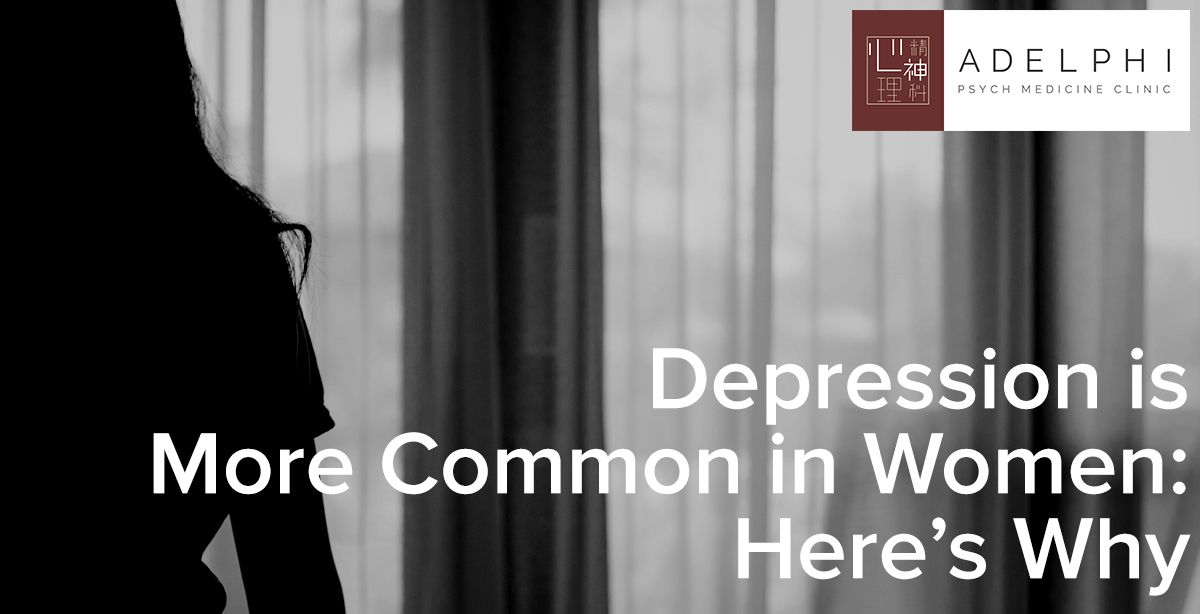
Women are two times more likely than men to experience depression, research suggests. This gender gap has often been attributed to hormonal differences between men and women but are these the only ones to blame?
A new study attempts to shed some light on why depression is more common in women. According to the researchers, a much more serious reason is behind the phenomenon and it has to do with brain chemistry.
Brain Differences – A Cause of Depression?
The study involving 115 participants relied on brain scans to examine chemistry and pinpoint specific differences between men and women.
University of California researchers looked at inflammation and how depression manifests itself in the human brain. The results were quite staggering – inflammation produced very different brain responses in men and in women.
The results of the study were presented in the journal of Biological Psychiatry: Cognitive Neuroscience and Neuroimaging. They focused predominantly on anhedonia – the inability to derive pleasure from activities that previously used to be enjoyable. Anhedonia is one of the hallmarks of depression.
Participants in the study were assigned either to a placebo group or an endotoxin group. The endotoxin was administered to cause an inflammatory response. After the administration, the participants were asked to perform a task and they were promised a monetary reward for its completion. Brain scans were carried out to see how brain chemistry changed during and after the completion of the task.
Endotoxin administration caused anhedonia in the female study participants but it did not have the same effect on the men. In addition, the women participating in the experiment experienced higher levels of inflammation.
As a result of the experiment, researchers concluded that women suffering from inflammatory conditions are much more likely to experience depression than men. The research team recommends the close monitoring of women being treated for chronic inflammation, as these patients could potentially start exhibiting signs of depression.
Other Reasons for the Depression Gender Gap
Many label the new study revolutionary because it takes a much deeper look at brain chemistry than ever before.
Psychiatrists in Singapore have long recognised the differences between men and women when it comes to depressive disorders. Certain groups of women are even more vulnerable than the general population – pregnant ladies, women going through menopause and even teenagers who are going through puberty.
There’s also some evidence that in comparison to men, women have a stronger genetic predisposition towards the development of depression.
On top of these physiological reasons, however, there could also be some psychological differences that contribute to the vulnerability of women.
Mental health professionals have found out that women tend to be much more introspective than men. Women tend to think more about things and analyse situations, whether these are good or bad. This tendency increases the likelihood of depression. In contrast, men are more likely to respond with angry outbursts or substance abuse when faced with harsh circumstances and difficult situations.
It’s also been established that women tend to be more invested in intra-personal relationships. This tendency goes beyond romantic involvement to affect most interactions women have with family, loved ones, co-workers and friends.
As a result of this emotional investment, women are much more likely to suffer in the event of relationship problems. They can be impacted in a very severe way, which will eventually contribute to the onset of depression.
Social Factors and Female Depression
If these differences weren’t enough, it’s also been established that societal pressures men and women face are quite distinctive. This is the final contributing factor that could shed more light on the gender depression gap.
Generally speaking, women are subjected to higher levels of stress than men. In today’s society, both men and women in the family have to work in order to contribute to the household budget. Ladies, however, tend to have a range of additional responsibilities.
Women are still the primary carers when it comes to children and elderly family members. They are responsible for maintaining the home, addressing issues their children may be facing and coping with societal expectations that can sometimes be unfair.
Women also tend to live longer than men in most parts of the world, Singapore included. Singapore’s average life expectancy is 85.2 years for women and 80.7 years for men. Old age is associated to higher incidence rate of depression due to loneliness or bereavement.
A final societal difference focuses on the ways in which women and men address depression.
Multiple studies from across the world show that women are more likely than men to seek treatment for problems like depression and anxiety. Thus, some analysts believe that statistics for men aren’t exact due to the fact that many men facing depression attempt to handle the issue on their own rather than through therapy.
Recognise Depression and Seek Help!
Whether you’re a man or a woman, it’s crucially important to recognise the sign of depression onset and to seek professional assistance as soon as possible.
Some of the common symptoms of depression include a feeling of sadness that doesn’t go away, hopelessness, apathy and loss of interest in previously favourite activities, insomnia, concentration problems, weight loss and a sense that life is no longer worth living.
If a person you love is experiencing some of the above-mentioned symptoms, you’ll need to get in touch with a mental health clinic in Singapore as soon as possible.
Depression can be controlled when the right approach is chosen.
Adelphi Psych Medicine Clinic focuses on a holistic approach towards the treatment of depression. Psychotherapy, medicine-based therapy, behavioural therapy and social help may all be employed to ensure the holistic management of the condition.
We recognise the fact that depression expresses itself differently for different people. This is why our therapeutic approach involves extensive communication to pinpoint the causes, the symptoms and the behavioural changes that mark the onset of depression.
Contact Adelphi Psych Medicine Clinic today if you’re feeling depressed or if you worry about a loved one. We’ll do our best to answer your questions and offer a tailored therapeutic approach bound to deliver the best results.
Our clinic can be found here:


